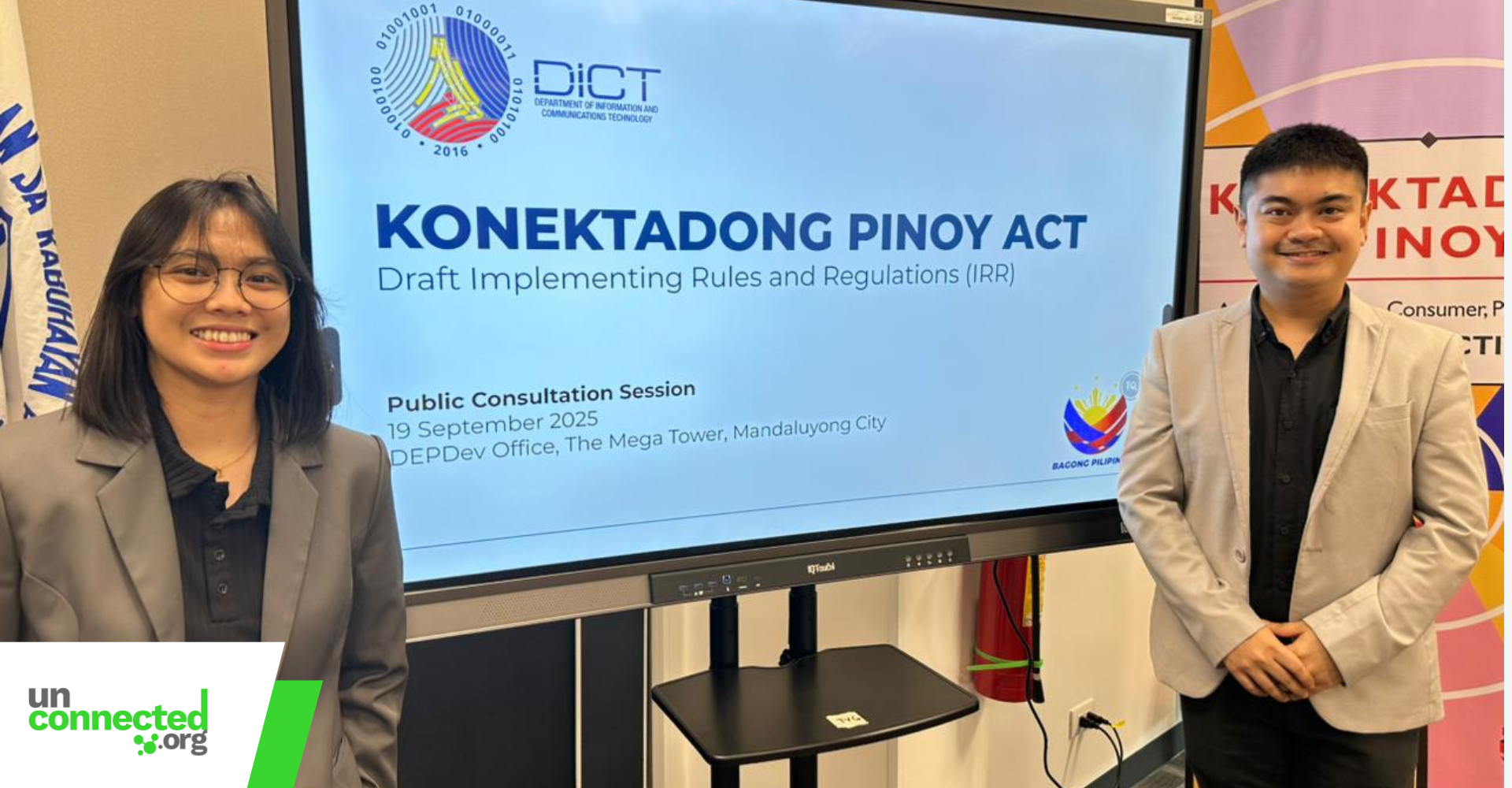unconnected.org welcomes digital connectivity law in the Philippines
Konektadong Pinoy Act lapsed into a law 24 August 2025. RA 12234 is a landmark digital connectivity law in the Philippines; it establishes a comprehensive and inclusive data transmission and connectivity framework for the country.
Its salient provisions include the removal of the requirement for a legislative franchise for establishing networks to offer data transmission services or Internet - this is a game changer especially for remote areas where local internet service providers (ISP) are now able to register as a Data Transmission Industry Participant (DTIP) and serve its community.
In geographically isolated and disadvantaged areas (GIDA), where traditional telecommunications coverage may be a challenge, small players are envisaged to serve the “last-mile” while being able to sustain its business given the new law’s provisions on infrastructure sharing and the publication of an access list.
With Konektadong Pinoy, end-users are also extended the rights for timely availment of data transmission services, reprieve for refunds, as well as to be informed of service interruption, among others. Students, more specifically, are accorded discounted rates for accessing Internet services from duly registered DTIPs.
Enshrined in the law also are quality of service and performance standards, and cybersecurity certification for DTIPs. A Spectrum Policy Management Framework (SPMF) shall also be developed to ensure efficient utilization of radio spectrum among DTIPs.
On an economic lens, the new law brings in various players from various segments covering international gateway facilities, backbone, middle mile and last mile in a competitive environment, which spells more efficient services, better rates and more pervasive connectivity.
In a gathering, unconnected.org Country Manager for Philippines Benjz Gerard Sevilla expressed its support to the effective implementation of the law, stating “...in the most rural of areas, it is expected that micro-ISPs will now be subject to an updated regulatory regime allowing access to technologies, such as satellite, that may be offered as a form of economic activity, enabling community networks.”

